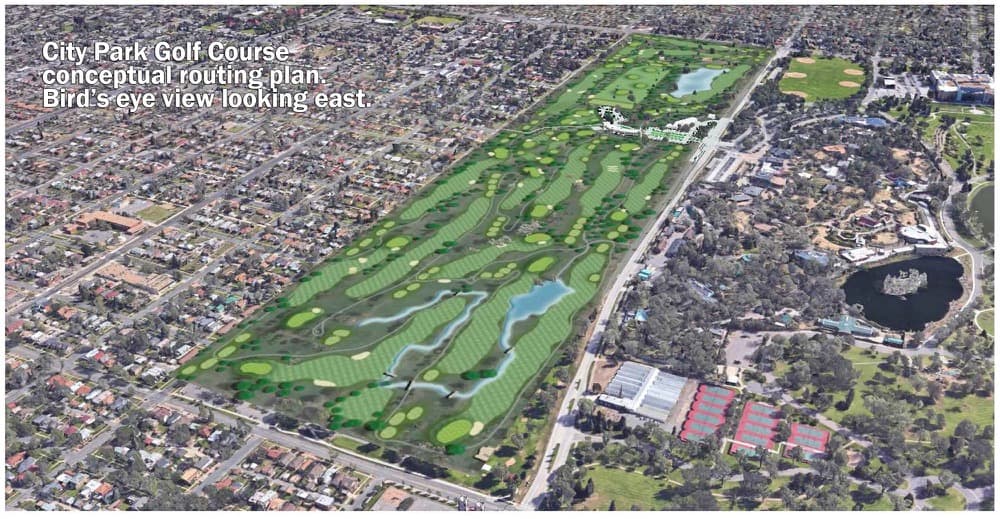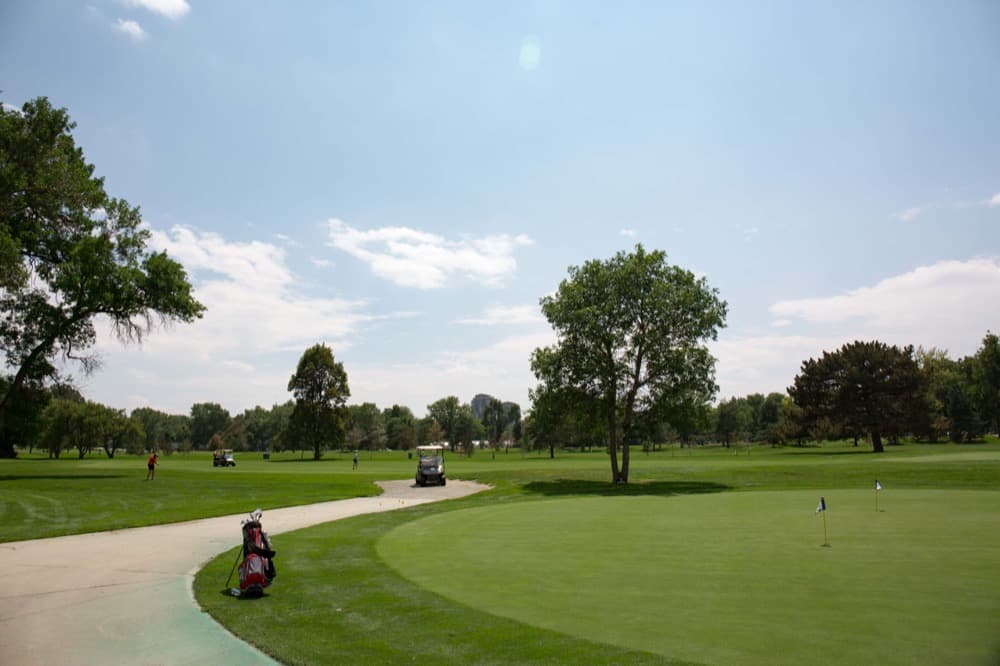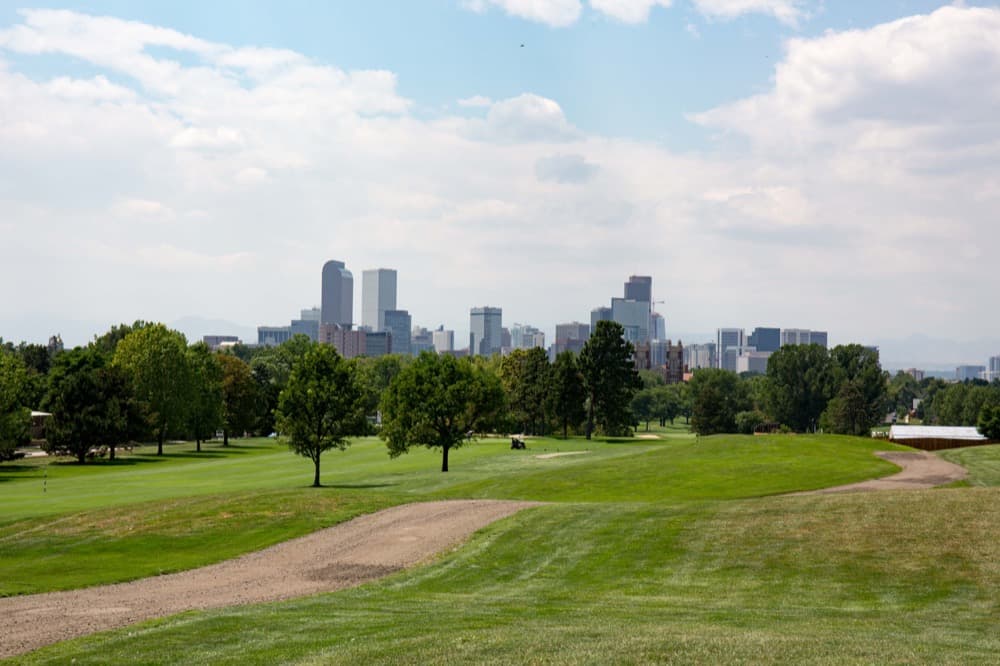Early next month, City Park Golf Course is scheduled to close to the public. Then come the chainsaw crews and the heavy construction equipment. When it reopens some 18 months later, it will still have 18 holes, grass and trees -- but it will be a whole different course.
With construction scheduled to begin Nov. 1, the city government has released new details of the controversial project, which they say will seamlessly reconfigure the course to improve the city's defenses against floods.
Meanwhile, a lawsuit meant to stop the project is pending in district court, and the plaintiffs this week urged a judge to take immediate action to hold off construction. The plaintiffs allege that the redesign of the historic course is legally questionable and mostly meant to help the even-more-controversial Interstate 70 widening project.
Here's the latest.
What it means for golfers:

City planners have released a rendering that shows some significant changes for the course.
"The design was developed to match the character and strategy of the existing golf course and environment. The plan maintains the parkland style and feel," wrote city spokesperson Nancy Kuhn in an email to Denverite.
Almost all of the holes will be reconfigured, taking the course from a par 72 to a par 70. The city's goal is to keep the final course within 2 percent of the current length. The holes will now be in a "returning nines" setup, which is convenient if you want to play nine holes.
The clubhouse at the northwest corner of the lot will be relocated to the center of the course. City officials say the current location floods.
The city plans to cut down about 260 trees within the course, though it says it will keep almost all of the trees along the edge of the course and some of the large, older groves inside the site. The city will plant about 600 trees on the golf course to replace the lost canopy, according to staff.
The driving range will be extended to about 300 yards and 25 stations, allowing the use of drivers and woods.
The irrigation pond on the southeast side of the current course will be split into two different bodies of water connected by an underground pipe.
A new stream will run through the west side of the course; during heavy floods, the stream channel will fill up with water, slowing down floods that otherwise would wash down toward Interstate 70 and the National Western Center.
If you're a golfer with thoughts on the new design, let me know.

Why some people hate it:
There have been objections to the idea of cutting down trees and changing a beloved area, but a lot of the resistance to this project comes from its link to an even bigger project.
This redesign is part of Platte to Park Hill, a $300 million effort that city staff say will protect neighborhoods in eastern and northeastern Denver -- and it also will keep floodwater out of Interstate 70. I-70 is set to be sunk into a trench and widened through northeast Denver, a highly controversial project.
Opponents of the flood-control plan have challenged it in federal court, including through a lawsuit that specifically aims to stop the golf course project. Basically, they argue that this is an improper use of park land to benefit CDOT. (CDOT is contributing funding for the Platte to Park Hill plan.)
"City officials and contractors engaged in this pattern of obfuscation because they know, or should know, that Denver’s residents, who are also stormwater ratepayers, would otherwise oppose the use of significant funds to support a stormwater project designed specifically to benefit the expansion and lowering of I-70," the lawsuit stated.
The city says that it would want this kind of flood protection whether or not I-70 was changing; this is a mutually beneficial collaboration with the Colorado Department of Transportation, they argue. It will lay a backbone for further flood protection between City Park in a corridor near York Street, according to staff.
(For a deeper exploration of flooding in this area, read our earlier feature and explainer of the larger project.)

The lawsuit went to court this August.
Nearly two months have passed since the trial closed. Since then, the pressure has only ramped up.
On Oct. 17, the Democratic Party of Denver's executive committee voted to oppose the I-70 plan, and multiple other lawsuits are proceeding too. On Monday, plaintiffs' attorney Aaron Goldhamer filed for a preliminary injunction, asking the court to prevent the city from starting construction until a decision has been made in the larger case.
"I expect that the judge is taking his time on crafting a well thought-out ruling ... I suspect that he’s taking his time to cast as much of an appeal-proof ruling as possible," Goldhamer said.
"That said, the time that he’s taken gives me some optimism." If the judge had wanted to rule against the plaintiffs, he said, he potentially could have done so already.
In other words, Goldhamer is finding a silver lining to this long wait. Meanwhile, the days until construction starts are ticking away.










